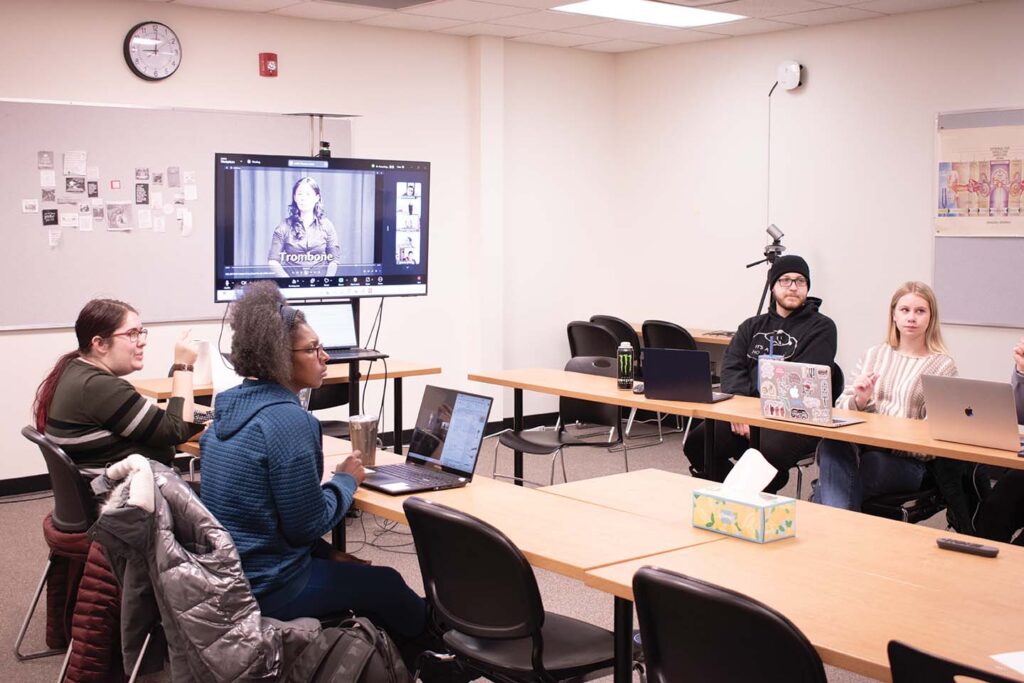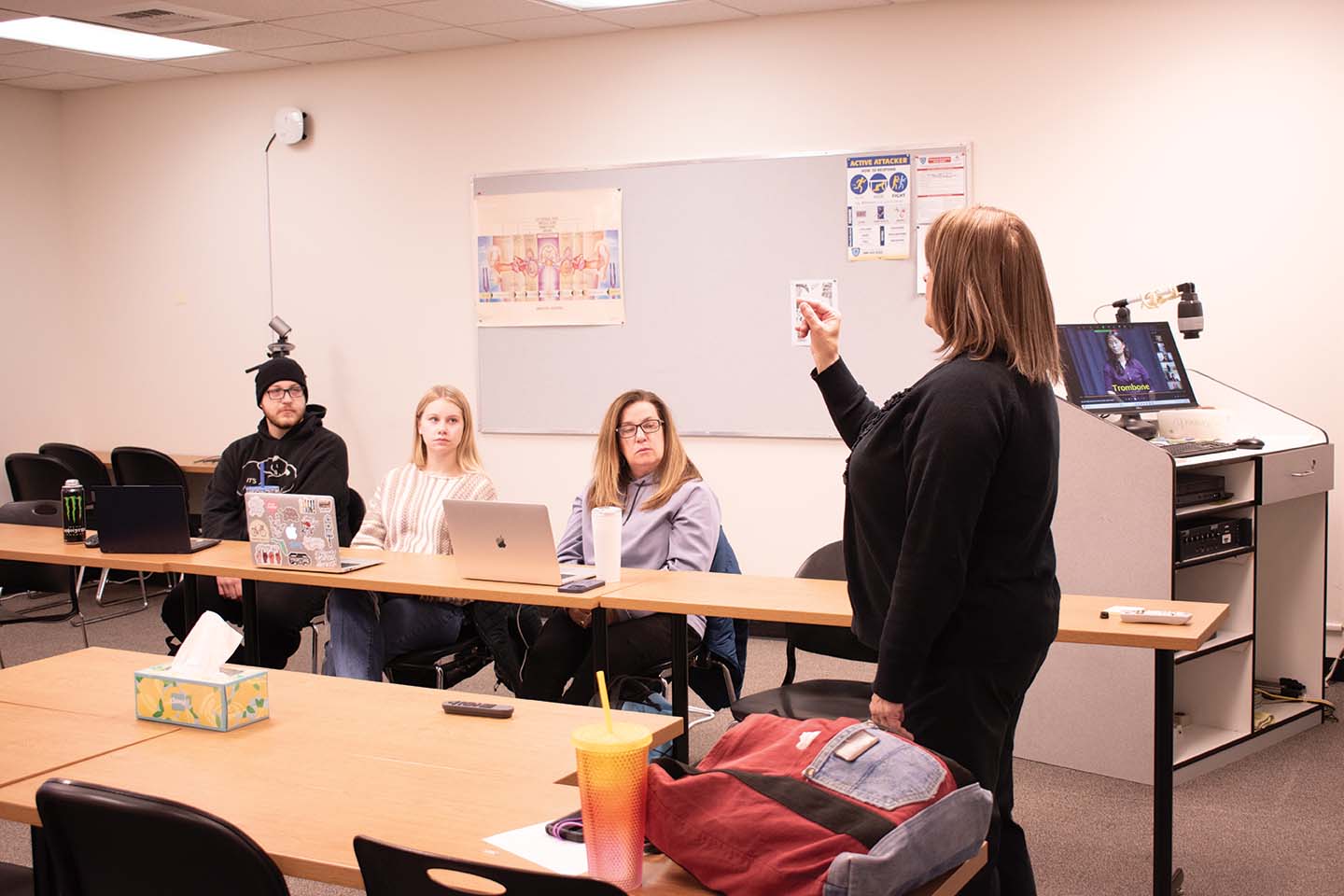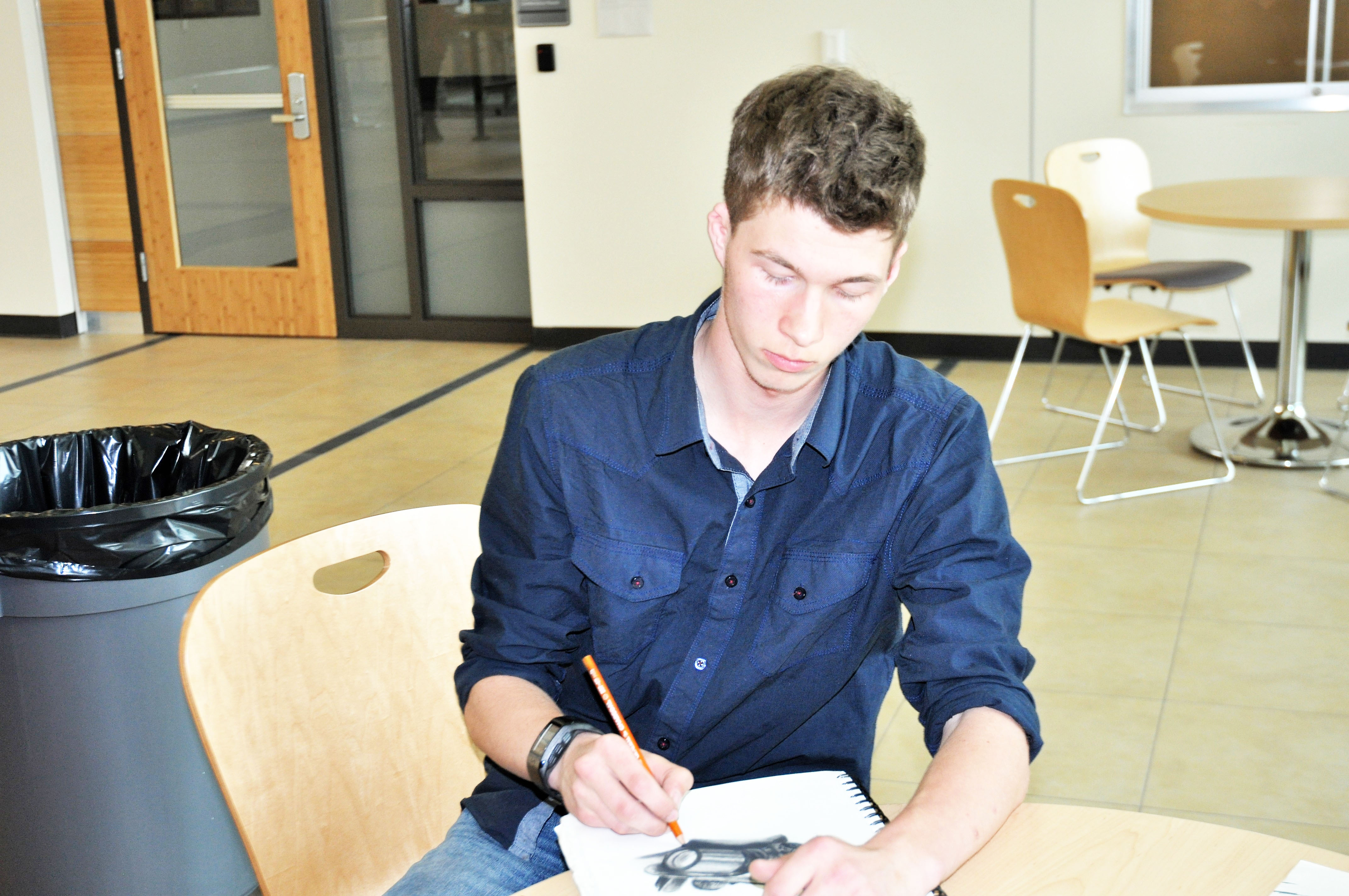
SFCC offers many programs that can lead to finding a job right after graduating. The Interpreter Training Program (ITP) is one and is a 3 year program mainly focused on interpreting in education. It is the only ITP in Washington and offers both online and in person classes.
Corrine Morrow is a lead instructor of SFCC’s ITP. She got her certificate of completion at SFCC and has been interpreting professionally since 1994.
“As an interpreter, you are representing two or more people,” Morrow said. “Without that, there’s no reason for you to be there. You’re representing them, so your filters, your biases, your triggers, all of that has to be put aside and you have to become them and present them as they need.”
Audra Rundle recently graduated in June 2024 from the interpreting program. She is now working in the Spokane Public Schools district as an education interpreter. Prior to SFCC, Rundle, got a degree in English and was working as an editor before feeling the urge to find a new passion.
Rundle never had exposure to Deaf people before SFCC.
“It’s kind of like drinking from the fire hose because there’s a lot of information,” said Rundl. “They could teach you as much information as possible in that amount of time, but nothing is going to prepare you, you just have to go do it. (The program) gave me the confidence to just put myself out there which was the most important thing.
“They taught me how to study for this, how to prepare, and how to internally deal with the stuff that comes with being somebody else’s voice,” Rundle said. “That’s a huge responsibility…The most valuable thing was learning about the Deaf culture. Just learning the language would never be enough. You have to understand the culture.”
Ashley Detore was a student at SFCC who graduated in 2010. She is a sign language interpreter and Deaf services coordinator who focuses mainly on education.
Through SFCC’s Interpreter Training Program, she gained important skills needed to be an interpreter. She learned not only the mechanics of signing, but the importance of properly representing the consumer.
“(We learned) to be ready to see a wide range of sign styles. We learned to work with an ASL brain and a transliteration brain because those are very different skill sets,” Detore said. “Years after graduation, I developed these skills, but I think it was a really great introduction… (They taught us) how to treat the consumer with respect and recognize our role in the communication.”
A lot of the learning comes from getting out into the Deaf community and interaction with them. That’s where the growth in interpreting really begins.
“It doesn’t stop after graduation, that’s where it starts,” said Detore. “In order to be the best interpreter you can, the learning never stops. Even though I’ve been doing this for thirteen-fourteen years, I still learn new stuff all the time (and) I still have a lot of growth.”
Morrow and other instructors want to make the program a BAS program in order to better prepare and attract more students. With there being a national shortage of interpreters, they are hoping to be a part of the solution.
“If there are no interpreters, there is no access,” said Morrow. “Whether you are going to go into interpreting or not, it is a valid and amazing language and can be used anywhere. Even the graduates we had that didn’t go into interpreting are using it out there. Sign language is so beneficial,”


